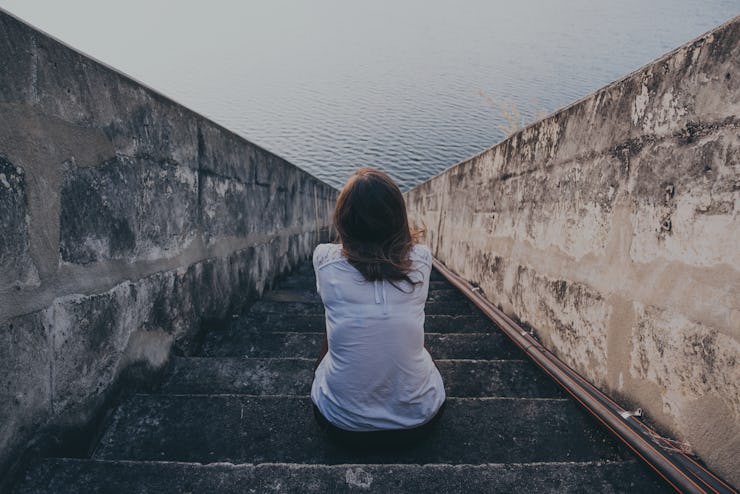If you want to scare the cool teens in your neighborhood, go as rejection
How would you handle your fear if you were forced to confront it?

In this season of spooks and ghouls, fear is something that suddenly becomes cool to talk about. We want to be afraid; we put on the scary movie and we pay $40 to have an actor chase use through a scary building. What’s less cool, and can be more confusing, are not-quite phobias that stick around all year, like feeling fright in a dark garage or avoiding the shower once you spot a spider chilling in the tub.
Vanessa LoBue, Ph.D., an assistant professor at Rutgers, studies how humans respond to emotional stimuli, so in turn, that means she sometimes studies fear.
She explained to me that while traumatic experiences can lead to specific fears, we also develop fears by watching another person — a friend, a family member, or even a stranger — react fearfully to an object or an event.
A version of this article first appeared as the Sunday Scaries newsletter. Sign up for free to receive it on Sundays.
Mental health can also play a role in the development of fear. LoBue notes that, because anxiety is a mood that can make people more prone to reacting fearfully, “having an anxious temperament or being in a state of anxiety might make someone more likely to be afraid given the right environmental circumstances.”
"A lot of young children have very few [fears], and fewer in the presence of their mothers, who make them feel safe.
And while fears can generally change over time, there are specific fears that are most common during certain times in a person’s life. LoBue explains that the most commonly experienced fear for preschoolers is the fear of animals, while slightly older children are more commonly afraid of fantastical or magical creatures like the Boogie Man.
Later in childhood, a fear of blood or injury becomes more common, and finally, a fear of rejection and public speaking sets in when a person becomes a teenager.
If you really want to spook the cool teens in your neighborhood, go as rejection.
Our fears are likely to change as we get older.
“While fears can develop any time, they are likely to change as we get older,” LoBue says. “To me, the most interesting thing about fear is how a lot of infants and young children have very few of them, and fewer in the presence of their mothers, who make them feel safe. It shows this immense flexibility in generating opportunities to learn about novel things and situations within the safe space of a caregiver.”
If your fear is something that’s getting in the way of living your life in the way you want, there are some steps you can take to ease the situation. Experts recommend recontextualizing what you’re afraid of. This involves considering whether or not you’re overestimating the threat and if you’re underestimating your own ability to handle it. Take a moment to consider how you would handle your fear if you were forced to confront it, and you might realize you don’t have much to be afraid of after all.
A version of this article first appeared as the Sunday Scaries newsletter. Sign up for free to receive it on Sundays.